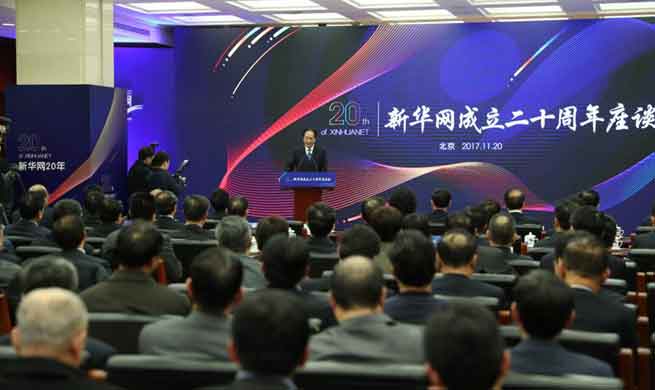BERLIN, Nov. 20 (Xinhua) -- German coalition talks collapse has caused widespread unease among Germany's European partners and domestic industry representatives.
Dutch Foreign Minister Halbe Ziljstra expressed his concern by describing the development as "bad news for Europe."
"Germany is very influential in the EU, but without a government it lacks a mandate and will struggle to adopt clear positions," said Ziljstra.
The Dutch politicians voiced against re-elections instead suggested a renewed talks among German parties after a cooling-off period.
Czech Europe Minister Ales Chmelar reacted by saying that Prague hoped "Germany would have a strong government sooner or later."
Germany is widely seen as a stabilizing factor in the European Union (EU), which plays a crucial role in ensuring the bloc's political and economic success.
The euro fell sharply against the dollar on Monday morning but later regained some of its ground.
"The collapse of the coalition talks in Germany on Sunday night brought back the topic of political uncertainty to financial markets," Tilmann Galler, global market strategist at JPMorgan Asset Management, told the newspaper "Financial Times".
German business representatives largely reacted with dismay to the FDP's exit from talks.
"What a mess," said Holger Bingmann, president of the German Federation of Wholesale and Foreign Trade (BGA), on Monday.
According to Bingmann, there seemed to be an increasing unwillingness among political parties to assume governing responsibility which was "damage to democracy."
He recommended the parties to reconsider their stances during a 14-day breathing period following this "low point."
In a similar vein, Peter Wollseifer, president of German Confederation of Skilled Crafts (ZDH) complained that it was a "fatal" signal to Germany's economy and society that the negotiating parties had proven unable to reach sustainable compromises.
Eric Schweitzer, president of the Association of German Chambers of Industry and Commerce (DIHK), lamented that an important opportunity had been wasted to overcome ideological divisions in favor of pragmatic solutions. As a consequence, there was now a risk that important reforms would be postponed.
"German firms have to prepare themselves for what might become a long phase of insecurity," Schweitzer warned.
Nevertheless, several leading German economists voiced optimism that the country's economic momentum would be maintained after eight consecutive years of growth.
"The resulting economic damage is likely to be limited in light of strong fundamentals," Holger Sandte, Chief Economist at Nordea Bank, told press.
While Joerg Kraemer, Chief Economist at Commerzbank, described the uncertainty caused by the failure of talks as "poison for the economy." But he's still confident that high productivity and loose monetary policy will at least temporarily sustain the current boom.
Clemens Fuest, president of the Munich-based Ifo Institute for Economic research, voiced the view that a possible minority government might be a good political option moving forward in an environment of heightened uncertainty.
By contrast, Marcel Fratzscher, president of the Berlin-based German Institute for Economic Research (DIW), was unwilling to write off a "Jamaica" coalition entirely yet.
The CDU, CSU, FDP and Green parties "must give (negotiations) another go, because they know that none of them will benefit from re-elections," Fratzscher was quoted saying.

















